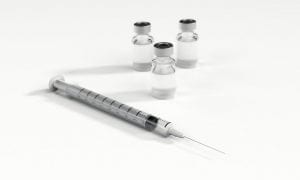According to a late October 2022 news release from pharmaceutical company KalVista Pharmaceuticals, Inc. (“KalVista”), the company released positive data from a Phase 1 study evaluating oral sebetralstat for patients with hereditary angioedema (HAE). Currently, a film-coated oral version of sebetralstat has made it to Phase 3 studies. However, the Phase 1 data centers around the compound being delivered via an orally disintegrating tablet (ODT). Ultimately, the goal of the study is to determine whether the ODT version of the treatment could offer new and effective therapeutic options for patients.
KalVista describes sebetralstat as:
an oral plasma kallikrein inhibitor and the most advanced compound in our portfolio of candidates for the treatment of hereditary angioedema (HAE). Early treatment of HAE attacks has been shown to be key in maximizing treatment efficacy [but] dosing with approved injectable treatments is often delayed undermining treatment outcomes.
Therefore, the ODT version, which provides faster reuptake while maintaining safety, could help treat early-stage HAE attacks. This seems to correlate with the data from the Phase 1 study, which sought to understand the pharmacokinetics of ODT formulated sebetralstat. 36 healthy volunteers enrolled. The findings show that sebetralstat is safe and shows a similar safety profile to the formulation of the drug currently in the Phase 3 trial.
What is Hereditary Angioedema (HAE)?
Normally, a blood protein called C1-inhibitor regulates complex interactions throughout the body. This blood protein plays a role in disease prevention, blood coagulation, and even inflammation. However, in those with hereditary angioedema, the C1-inhibitor protein is either defective or does not work at all. This causes the generation of excessive amounts of bradykinin, a protein fragment that promotes inflammation in the body. HAE is a condition in which chromosome 11 defects cause recurrent attacks of severe and unexplained swelling beneath the skin. Women may be more symptomatic due to hormonal fluctuations. Other triggers can include stress and physical injury, though HAE “attacks” may occur without a known trigger. Swelling may occur in the extremities, face (causing eyes to swell shut), intestinal tract, and throat. Additional symptoms depend on the area of swelling but can include difficulty breathing, nausea and vomiting, and abdominal pain among others.







